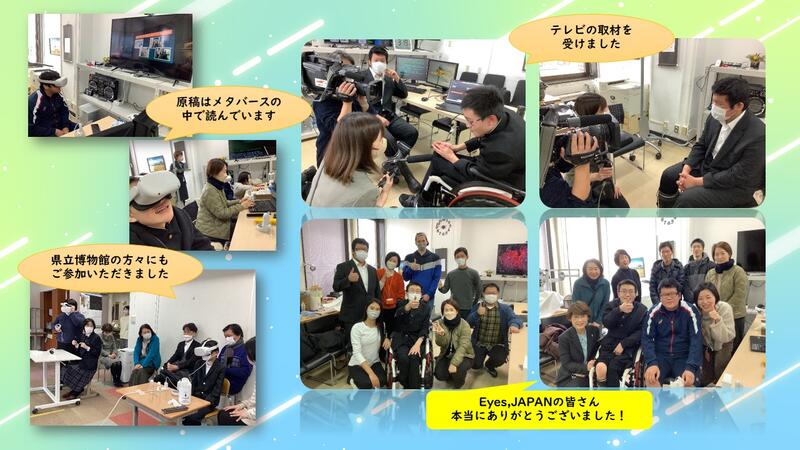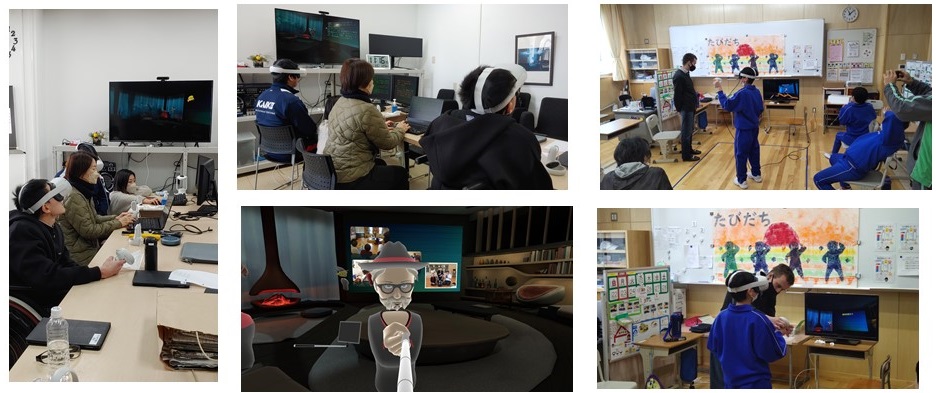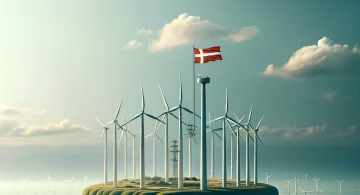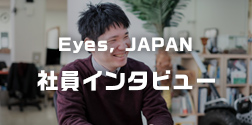Eyes, JAPAN
Virtual lessons in Metaverse – Follow up
Peter Kudry
In this post, I would like to follow up on our story about Virtual lessons in Metaverse. In July 2022, we introduced Metaverse and two platforms that were considered to be used in a pilot program for teaching students with disabilities in virtual space.
To summarize my previous post, we pondered on using VRChat, an online virtual world platform that allows users to interact with each other via user-created 3D avatars in user-created worlds but due to its limitations and overall complexity, we settled on using Bigscreen VR.
To understand the full context of this post, we recommend reading the former post here before reading this one.
Throughout November and December 2022, we held several sessions at Eyes, JAPAN where we taught couple of students and teachers from Aizuwakamatsu Support School, Takeda campus (a school for students with special needs) not just about Metaverse in general, but also about using Bigscreen VR for remote meetings. The core of such meetings in metaverse was giving a presentation, so the goal of our sessions was for the students to broaden their skill-set of presenting in front of an audience, and the teachers to learn about head-mounted display technologies to be able to help students overcome technical challenges.
The program then peaked at an even on 23rd of January 2023, when the students of Takeda Support School in Aizuwakamatsu, Sukagawa Support School in Koriyama and Fukushima Support School in Fukushima city, met in virtual world to participate in a presentation about the Great East Japan Earthquake that rattled the Tohoku area of Japan in 2011.
Furthermore, as some of Eyes, JAPAN staff are PhD students at the University of Aizu, we decided to use this opportunity to do a case study based in this project. In this study, we explored the Metaverse in education as a whole, but also with focus on students with disabilities. Additionally, we performed feasibility and technology adoption studies, as well as SWOT analysis and proposed possible future improvements.
This use case was then put into context of a Smart City and Society 5.0 concept which was proposed in the 5th Science and Technology Basic Plan as a future society that Japan should aspire to. In simple terms, Society 5.0 is: “A human-centered society that balances economic advancement with the resolution of social problems by a system that highly integrates cyberspace and physical space.” – Cabinet of Science and Technology Policy ; Council for Science, Technology and Innovation ; Japan.
It is difficult to encapsulate the full definition of a Smart City in one sentence, but to abstractly define its meaning, it could be described as: “A broad, integrated approach to improving the efficiency of city operations, the quality of life for its citizens, and growing the local economy.” – Boyd Cohen ; What Exactly Is A Smart City ; Fast Co. Exist.
From the two definitions above, we can see how those two concepts, or ideologies, complement each other.
However, to be able to truthfully state that the use of Metaverse in education for students with disabilities betters the quality of their lives and enhances the learning effect, there needs to be an evidence backing this claim.
So we have presented our hypothesis and experiences from this project at an 2023 5th International Conference on ICT Integration in Technical Education hosted at the University of Aizu in Aizuwakamatsu between January 24th and 27th.
We are currently working on a proceedings paper from the ETLTC 2023, which will challenge the claims mentioned above. It should be publicly available from sometime in May 2023.
At the time of the writing, there isn’t any reference that could lead our readers to this publication, but we will update this post once it becomes available.
So, stay tuned for updates!
Also, we are very happy to announce that this project will continue for at least one more year, so there will definitely be future posts about our endeavours from the other, the virtual side.



 2024/04/23
2024/04/23 2024/03/26
2024/03/26 2024/02/27
2024/02/27 2024/02/23
2024/02/23 2024/02/09
2024/02/09 2024/02/02
2024/02/02 2024/01/23
2024/01/23 2024/01/12
2024/01/12